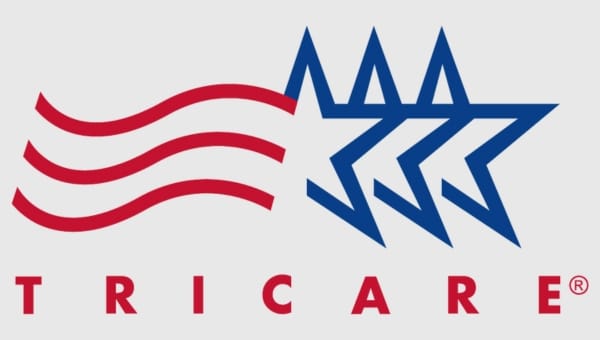Like any other substance, marijuana users might consider quitting or cutting back their intake. If you are considering quitting, it is important to understand the marijuana withdrawal timeline and symptoms.
As more states legalize marijuana for medical or recreational use, many people may feel tempted to experiment with this drug. People who use marijuana often start because they want to relax or feel more comfortable in social situations.
High school and college students are especially prone to using marijuana to fit in with their friends. Over time, casual experimentation with marijuana can turn to dependence and addiction. Withdrawing from marijuana is not an easy process. If you or a loved one quit using marijuana, here is what you can expect during the withdrawal process.
What Is Marijuana?
Whether you call it weed, pot, or Mary Jane, marijuana refers to the dried leaves, flowers, and other parts of the cannabis plant. The main active ingredient in the plant is Tetrahydrocannabinol (THC). This chemical can cause feelings of euphoria and relaxation, but it can also lead to anxiety and paranoia.
In 2021, the National Survey on Drug Use and Health reported that cannabis use is widespread among young adults. According to this survey, 35.4 percent of young adults aged 18 to 25 reported using marijuana in the past year. As marijuana legalization efforts gain traction across the US, marijuana usage will likely increase.
Addiction to Marijuana
Even though marijuana is gaining wider acceptance across the country, that doesn’t mean the substance is any less addictive. Over time, what began as experimentation can quickly turn into dependence. People who start using marijuana during their teen or young adult years are more likely to become dependent or addicted to marijuana. This condition is known as cannabis use disorder.
Experts define marijuana addiction as “the presence of clinically significant impairment or distress in 12 months.” If you have two or more of these symptoms, you may have cannabis use disorder.
Warning signs of cannabis use disorder can include:
- Using larger amounts of marijuana than intended
- Using marijuana over a longer period than intended
- Feeling like you should cut down or stop using marijuana
- Failed attempts to stop using marijuana
- Spending too much time buying, using, and recovering from marijuana
- Experiencing cravings for marijuana
- Neglecting social, work, or family obligations in favor of using marijuana
- Continuing to use marijuana despite social or interpersonal problems
- Continuing to use marijuana despite physical or psychological problems
- Using more and more marijuana to achieve the same effect
- Withdrawal symptoms when trying to stop using marijuana
Signs and Symptoms of Marijuana Withdrawal
If you’ve developed a dependence or addiction to marijuana, you may experience withdrawal symptoms when you stop using. These symptoms will vary from person to person, but here are some of the symptoms you can expect during the marijuana withdrawal timeline:
- Anger and irritability
- Aggressive behavior
- Feelings of nervousness and anxiety
- Restlessness
- Decreased appetite
- Weight loss
- Depression
- Sleep disturbances, including insomnia
- Nightmares
- Headaches
- Nausea, vomiting and abdominal pain
- Sweating
- Tremors
If you experience three or more of these symptoms shortly after you stop using weed, you are experiencing marijuana withdrawal. Individuals who use other drugs or who have a mental health condition such as anxiety or depression may have a more difficult time with withdrawal symptoms. Heavy users of cannabis also can expect more severe withdrawal symptoms.
Need Help For Marijuana Withdrawal?
Our admissions team is available around the clock to help you or a loved one get the help you need.
Marijuana Withdrawal Timeline
If you or a loved one plan to quit using marijuana, one of your first questions may be, “How long does withdrawal last?” Withdrawal symptoms can appear quickly after stopping. They may last up to five weeks.
The marijuana first withdrawal timeline symptoms will often begin 24-48 hours after you stop using weed. You may experience restlessness and irritability. The withdrawal symptoms usually reach their peak around day three. Many people experience stomachaches and vomiting. You also may sweat excessively. During this stage, many people experience intense cravings to use marijuana. To prevent relapse, people suffering from cannabis use disorder should seek professional help.
After the first 72 hours, the physical symptoms of weed withdrawal may begin to subside. That doesn’t mean you are out of the woods. In the first week to 10 days after quitting, many people experience intense psychological symptoms, including depression and anxiety. If you experience these symptoms, it’s a sign that your body is adjusting to the lack of THC.
Most withdrawal symptoms stop within three weeks of quitting. Some symptoms, like insomnia, may persist as long as five weeks.
Risks and Dangers of Withdrawing from Marijuana
One of the biggest risks of withdrawing from marijuana is relapse. Marijuana withdrawal symptoms can include intense cravings, depression, and anxiety. Some people will begin using weed again to get relief from the cravings and other psychological systems. People with co-occurring mental health conditions like depression, anxiety, or bipolar disorder also experience exacerbated psychological problems during withdrawal.
Addiction Treatment for Marijuana
Like other substance use disorders, there are many treatment options for marijuana addiction. A trained professional addiction counselor can help you or your loved one stop using marijuana.
For some people, treatment programs can include residential, PHP, IOP, or outpatient programs. Some programs require a significant time commitment for individual and group therapy, up to several hours per day. These programs can include cognitive behavioral therapy (CBT), twelve-step programs, or holistic therapies.
If you think you or a loved one are addicted to marijuana, you may have a lot of questions and concerns. A professional addiction counselor can help you understand what to expect during withdrawal. They can create a customized treatment plan that addresses your medical and personal history. There is hope for recovery from marijuana addiction!

Does Insurance Cover Marijuana Addiction Treatment?
Major insurance plans usually have a behavioral health component. This means they cover treatment for mental health disorders and substance use disorders in the same ways as they cover medical conditions. Some plans vary on what they’ll pay for treatment based on in-network or out-of-network providers. You may need to reach a deductible before your benefits kick in. This means that you’d pay up to a certain designated amount, and once you get to that amount, your insurance covers the rest of the cost or a portion of the cost.
If you’d like to find out if your insurance covers marijuana addiction treatment, call our admissions advisors. We’ll work directly with your insurance to determine your benefits and out-of-pocket costs.
Getting Help For Marijuana Addiction
Overcoming marijuana addiction can feel overwhelming, leaving you uncertain about where to find support. At Vogue Recovery Center, we understand the complexities of addiction and are here to help. Our dedicated team provides a safe, supportive environment where healing begins. With evidence-based programs tailored to your needs, we empower you with the tools for long-term recovery. Taking the first step may seem daunting, but you don’t have to do it alone. Let us guide you every step of the way. Call today to learn more about our programs and how we can help you or a loved one begin the journey to lasting recovery.

Medically Reviewed by Kelsey Jones, MS, LPC















